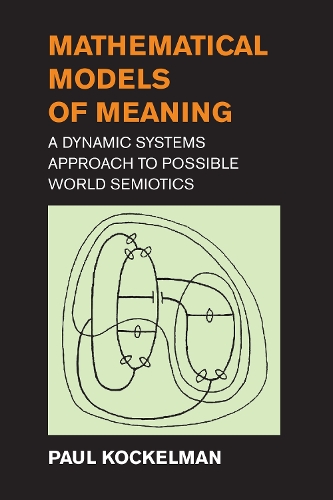
Mathematical Models of Meaning: A Dynamic Systems Approach to Possible World Semiotics
(Paperback)
Publishing Details
Mathematical Models of Meaning: A Dynamic Systems Approach to Possible World Semiotics
By (Author) Paul Kockelman
MIT Press Ltd
MIT Press
23rd September 2025
United States
Classifications
General
Non Fiction
410.151
Physical Properties
Paperback
288
Width 152mm, Height 229mm
Description
A mathematical model of meaning that captures the dynamics and diversity of meaning-oriented agents. A mathematical model of meaning that captures the dynamics and diversity of meaning-oriented agents. In Mathematical Models of Meaning, Paul Kockelman offers answers to the following kinds of questions- What is meaning What is the relation between meaning, information, value, and purpose What ingredients are necessary for a system to exhibit meaning What behaviors, and capacities for behavior, are particular to meaning-oriented agents Is there a relatively simple mathematical model that can adequately capture the dynamics-and diversity-of meaning-oriented agents And finally, how can we best bridge the divide between interpretive paradigms that are qualitative and context rich and formal methods that are quantitative and domain general Partially grounded in a pragmatist approach, this book rethinks the semiotic, statistical, and logical currents of Charles Sanders Peirce's thought in relation to more recent developments in allied traditions. Putting possible worlds, as well as social relations, at the center of significance, it focuses on the emergence of meaningful behavior among relatively distributed agents that choose in real time, learn over developmental time, or evolve over phylogenetic time.
Author Bio
Paul Kockelman teaches in the Department of Anthropology at Yale University. He is the author of numerous books, including The Art of Interpretation in the Age of Computation, The Anthropology of Intensity, and Last Words- Large Language Models and the AI Apocalypse.
